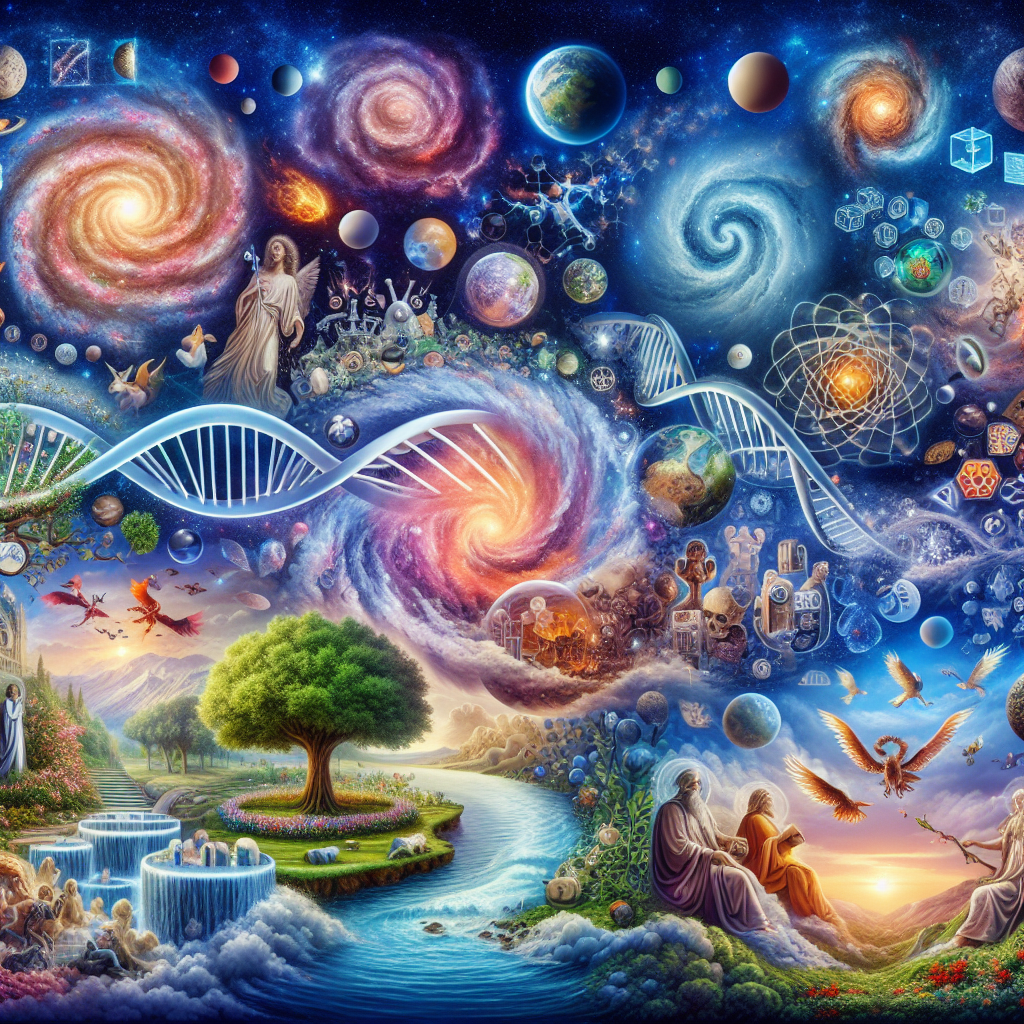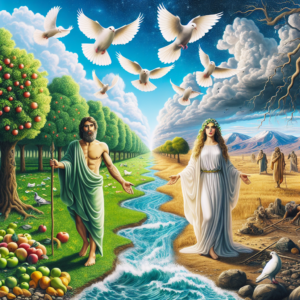Bridging the Divide: Exploring the Intersections of Biblical Creation, Scientific Theory, and Global Mythology
In a world where religion and science are often perceived to be at odds, a reevaluation of these disciplines reveals a tapestry rich with narratives that inform our understanding of existence. This exploration focuses on the intersections of Biblical creation, scientific theory, and the myths from diverse cultures, illustrating how these frameworks can coexist, complement, and deepen our understanding of the world and our place within it.
The Biblical Narrative of Creation
The Biblical account of creation, primarily detailed in the book of Genesis, provides a foundational narrative for millions of people around the globe. This narrative speaks of a purposeful creation, where the world is shaped by divine intention. The seven days of creation, culminating in the creation of humanity, have inspired countless discussions and interpretations over millennia.
The Biblical perspective often emphasizes themes of stewardship, morality, and the inherent value of human beings—principles that continue to guide ethical considerations in our relationships with one another and the environment. Instead of viewing the Genesis account strictly as a scientific explanation for the origin of life, it can be appreciated as a profound reflection on existence, purpose, and the interconnectedness of all living things.
Scientific Theory: A Journey of Discovery
On the other end of this spectrum lies scientific inquiry, which seeks to understand the world through observation, experimentation, and evidence. The theories of evolution and the Big Bang, among others, provide complex explanations for the origins of the universe and the diversity of life within it. The beauty of scientific theory lies in its self-correcting nature; as new evidence emerges, theories evolve, encouraging a mindset of curiosity and critical thinking.
Interestingly, many scientists acknowledge the philosophical and ethical implications of their findings, demonstrating that science does not necessarily negate the spiritual or moral dimensions of life. Many find joy and awe in the intricate laws of nature, viewing them as expressions of a deeper truth that resonate with spiritual beliefs, regardless of specific religious affiliations.
Global Mythologies: Wisdom Through Symbols
In addition to Biblical creation and scientific theory, the rich tapestry of global mythologies offers valuable insights into humanity’s quest for meaning. From the creation stories of the Indigenous peoples of North America to the Hindu accounts of Vishnu’s divine interventions, these narratives reflect the hopes, fears, and beliefs of different cultures.
Myths serve multiple functions: they explain natural phenomena, reinforce social norms, and provide systems of meaning in a complex world. They invite us to consider our origins and suggest that humanity has always grappled with questions of existence. These narratives remind us that our quest for understanding is a shared human experience that transcends geography and time.
Finding Common Ground
While traditionalists may view Biblical creation and scientific theory as mutually exclusive, and skeptics may regard mythologies as mere fanciful stories, there is a growing movement towards integration. This integration doesn’t require the abandonment of belief but rather an embracing of a more nuanced perspective.
For example, both scientists and theologians can appreciate the intricacies of creation—scientists marvel at the complexity of ecosystems and the universe, while religious scholars explore how creation stories inform contemporary ethical decisions on environmental stewardship. This dialogue fosters a greater appreciation for various modes of understanding and encourages cooperation across disciplines.
An Encouraging Path Forward
The journey towards reconciling these perspectives may not be easy. It requires humility, open-mindedness, and a willingness to engage in respectful dialogue. By recognizing that different frameworks can coexist, we open a pathway toward deeper understanding and compassion.
Educational initiatives that promote interdisciplinary discussions can pave the way for future generations to appreciate the value of both scientific inquiry and spiritual exploration. Encouraging young minds to ask questions—both scientific and philosophical—can inspire them to see the beauty in complexity and the unity in diversity.
In conclusion, the intersections of Biblical creation, scientific theory, and global mythology enrich our understanding of existence. They invite us to engage thoughtfully with fundamental questions about life, purpose, and our shared humanity. While differences may persist, embracing a spirit of curiosity and dialogue can transform the divide into an opportunity for growth, understanding, and unity. Together, we can forge a broader narrative that welcomes all voices in the exploration of what it means to exist within this magnificent universe.
Explore and dig up answers yourself with our BGodInspired Bible Tools! Be careful – each interaction is like a new treasure hunt… you can get lost for hours 🙂


